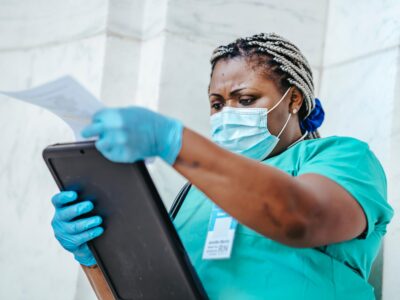Warning Comes as Former Nurse Faces Charges of Reckless Homicide and Adult Abuse.
Former nurse Radonda Vaught faces charges of reckless homicide and adult abuse after administering a fatal dose of the wrong medication to a 75-year-old patient at Vanderbilt University Medical Center in late 2017. But the incident didn’t come to light until more than a year later. VUMC reportedly failed to report the incident to the Davidson County Medical Examiner after the death of the patient. The Centers for Medicaid & Medicare Services is now threatening VUMC’s Medicare status, which could result in the hospital losing a fortune in Medicare funding.
As VUMC comes under fire for failing to report the incident, the American Nurses Association has issued a statement criticizing the “criminalization of medical errors” as a way of encouraging nurses and healthcare facilities to report medical errors in a timely manner.
ANA: An Advocate for Transparency
Just as Radonda Vaught was scheduled to appear in court last Wednesday for an arraignment on felony charges, the ANA released a statement criticizing charges related to medical errors, stating, “the criminalization of medical errors could have a chilling effect on reporting and process improvement.”
While the ANA declined to comment on the specifics of the case, the organization advocated for “a full and confidential peer review process”, in which medical errors are examined to make sure they don’t happen again in the future. Considering it took more than a year for VUMC to disclose the error, the ANA’s statement continued with, “Swift and appropriate action should and must always be taken when medical errors occur.”
The ANA went on to acknowledge that the Code of Ethics for Nurses states that nurses need to be held accountable for their individual practice. Errors should be corrected or remediated, and disciplinary action should be taken only if warranted. But the organization went on to say, “When error occurs, whether it is one’s own or that of a coworker, nurses may neither participate in, nor condone through silence, any attempts to conceal the error.”
The statement concluded with, “ANA stands ready in support of patients, nurses, and other healthcare providers in achieving high reliability in organizations to prevent these types of incidents from reoccurring.”
Focusing on Safety Rather Than Blame
Many healthcare facilities and nurses may avoid reporting medical errors for fear of retribution, including personal liability, lawsuits, and incurring a reputation of incompetence. But if facilities create an environment that emphasizes safety over personal blame, more nurses and providers may come forward with these kinds of mistakes. In addition to fatal medical errors, providers should also get in the habit of reporting trivial errors, near-misses and potential errors as a way of improving patient safety.
Studies show more than 90% of medical errors are preventable. But if providers fail to report these incidents, improving patient safety can be a challenge. Facility administrators should make a point to encourage providers and staff members to report medical errors in a timely manner, including fatal and non-fatal errors and near-misses, which tend to occur 300 times more frequently than adverse events. While discipline may be warranted in some situations, nurses and providers should understand that they have an ethical responsibility to report these errors.
Facilities should create protocol for reporting errors in a timely fashion, so a full and confidential peer review can take place. Using a digital system such as a web or cloud-based database for reporting and archiving these kinds of errors may streamline the process. This information should be kept confidential until the review process is complete. While facilities and providers may fear being blamed when reporting these incidents, acknowledging the fact that a mistake was made, sharing this information with colleagues and other care providers, and apologizing to patients creates a greater level of trust within the healthcare community.
Patients can also play a role when it comes to reporting medical errors. Tracking hospital readmissions and adverse drug reactions (ADRs) can be used to identify medical errors that go unreported. However, there tends to be little communication between patients and outpatient clinicians. Studies show patients are more willing to report potential errors when specifically asked as opposed to volunteering this information outright.
Facilities looking to improve the error-reporting process should consider implementing the following initiatives:
- Providing all staff members with a clear definition of the kinds of errors that need to be reported, including fatal errors, trivial errors and near-misses
- Improving staff access to error-reporting mechanisms, including databases and spreadsheets used to log and record error information.
- Encouraging outpatient clinicians to ask follow-up questions regarding a patient’s condition, including how they’re responding to certain medications
All healthcare providers have an ethical responsibility to report medical errors, regardless of how they may affect their personal standing in the community. Facilities can use these reporting tactics to collect more information on medical errors, so they can prevent them in the future.

















